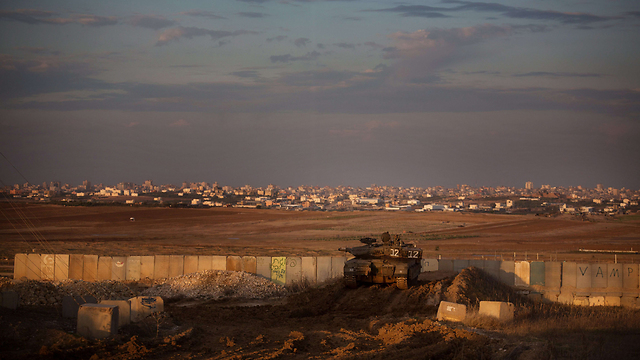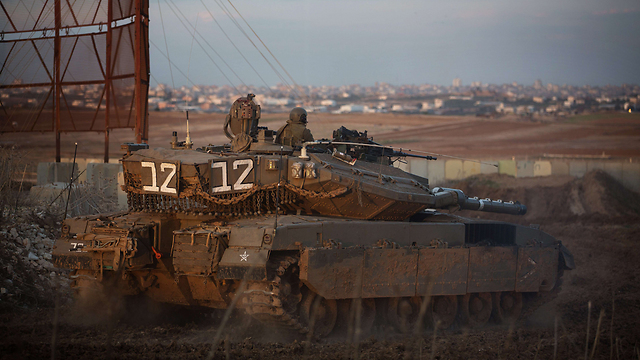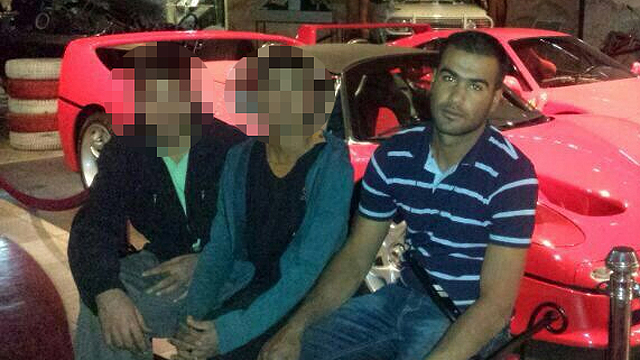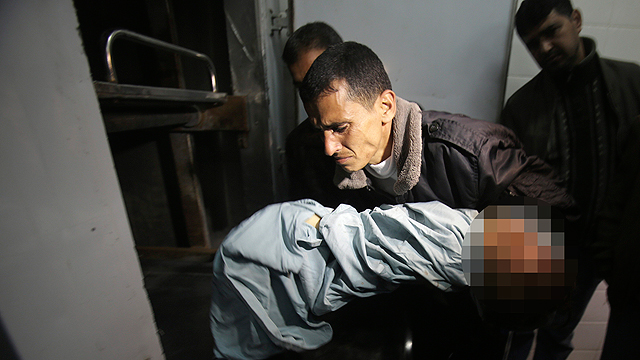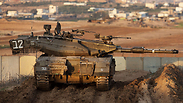
A senior official told Ynet that as of now, the deteriorating security situation is not expected to directly influence the peace process. "We need to see how the next day passes to understand what will happen next, but Hamas does not want an escalation, it is currently facing hard times and fears the IDF."
Related stories:
- West Bank: Stones hurled at bus; one injured
- IAF strikes multiple targets in Gaza
- Shooting attack near Gaza; Israeli killed
The security establishment is also not interested in a conflict, the source said, but nonetheless the IDF is currently in defensive formation along the Gaza border, preparing itself for additional rocket fire.
The IDF struck a Hamas observation site near the border fence on Wednesday, also destroying a weapons storage site and a Hamas base.
According to the IDF, Hamas used the post to monitor IDF movement in the sector.
The governmental diplomatic-security cabinet will convene Wednesday for its weekly meeting and is set to discuss the security situation.
The IDF's current assessment is that despite Hamas' reluctance to confront the IDF directly, other organizations in Gaza – namely the Islamic Jihad and its ilk – will attempt to harm Israel.
The IDF's Gaza division is still on a high level of alertness, with infantry and armored forces spread across the fence in an attempt to prevent both rocket fire and penetration attempts. Nonetheless, Southern District Command officials are trying to lower expectations of a looming conflict.
In spite of Tuesday's violence, residents of the Gaza-envelope area are trying to remain optimistic. "Except farmers working along the Gaza border, our current instructions are to maintain our daily routine. I don't think there is any reason to be concerned," Eshkol Regional Council head Haim Levin.
Sderot's newly elected mayor Alon Davidi echoed the comments, and tried to convey it was business as usual in the historically rocket battered southern city. "I was just at Sderot's newly established train station, and I was amazed to see hundreds of people bustling to and fro to get to work or their studies. Everybody is just going about their lives. In my opinion, the system is working but we are on alert."
Tuesday stones were hurled at a bus traveling in the West Bank. Magen David Adom paramedics arrived at a checkpoint near Qalqilya and tended to a 51-year-old man who sustained head injuries.
The stone hurling followed a wave of terror attacks in the West Bank, Gaza and central Israel, as earlier on Tuesday Salah Abu Latif, 22, who was working for a drilling company hired by the Defense Ministry, was killed by snipers while repairing the Gaza border fence.
Following the shooting, the IDF lunched several airstrikes on Gaza targets, killing a 3-year-old girl and injuring nine. According to Palestinian reports, more than 10 IDF airstrikes were launched in which two people were killed, including a three-year-old girl – Khala Sabiha.
A spokeswoman for the Iranian Foreign Ministry condemned Israel's attack on the Gaza Strip, claiming such an act stems from "desperation and fear from creation of the third Intifada by the oppressed people of Palestine in all occupied territories."
The spokeswoman, Marzieh Afkham, quoted by the Iranian news agency IRNA, further noted that "that Iran considers the Zionists responsible for the consequences of such state terrorist acts and called international bodies, especially the UN, to condemn (and prevent) the Zionist crimes against oppressed people of the besieged area of Gaza Strip."
Yoav Zitun and Matan Zuri contributed to this report
- Receive Ynetnews updates
directly to your desktop














